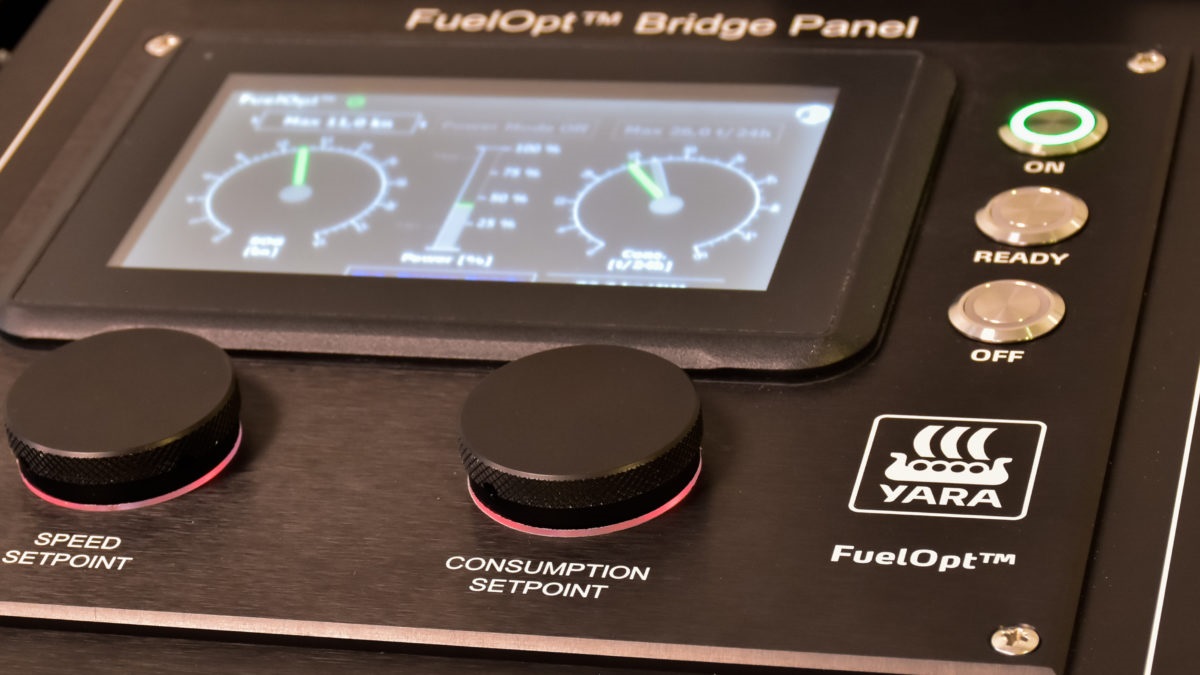Yara Marine’s FuelOpt reaches a major milestone as shipowners turn to proven savings of real-time, automated propulsion optimization.

Yara Marine has secured the three hundredth vessel contract for FuelOpt, its automated propulsion optimization system. The order strengthens Yara’s presence in the rapidly growing sector of vessel optimization, as shipowners seek to minimize fuel costs and reduce emissions in line with recent regulatory requirements.
FuelOpt improves operational performance through automated control of key operational parameters – vessel speed, fuel consumption, and propulsive power – as defined by crew. The system gives operators the flexibility to achieve their operational targets while complying with emissions reduction regulations, including the Carbon Intensity Indicator (CII) and the Energy Efficiency Design Index for Existing Ships (EEXI).
After passing the milestone, Mikael Laurin, Head of Vessel Optimization at Yara Marine Technologies, said: “Having the trust of so many companies and vessel crews is priceless. With FuelOpt onboard, 300 vessel crews have the tools they need to achieve their green shipping goals while boosting their bottom line.”
Introduced in 2013, FuelOpt has become a byword for direct and real-time fuel savings, changing the way some of the most advanced ship-operators control propulsion. Stolt Tankers, Teekay, Ardmore, Golden Ocean, and Algoma are among those to have reaped the benefits of the intelligent software and intuitive control that underpin the system.
Focusing on enhanced vessel efficiency
Yara Marine’s FuelOpt is the missing link between vessel control and propulsion machinery. Automated propulsion operation allows operators to focus on a combination of key vessel parameters – depending on their requirements – and the onboard hardware provides a user-friendly interface that enables crew to achieve direct results.
Once the crew enters the desired setpoints and activates the system from the bridge panel, FuelOpt dynamically controls the propulsion output, ensuring that power is always optimized based on defined settings and changing environmental conditions. Achieving steady and predictable shaft power removes costly variations in speed and power caused by human operational factors and delivers real-time fuel savings and emissions reductions.
FuelOpt also enhances operational safety by continuously monitoring signals from the engine and propulsion line to prevent machinery operation in adverse conditions.
On vessels with a controllable pitch propeller, FuelOpt acts as a dynamic tuning system for the propulsion machinery. The system regulates propeller pitch and speed separately to optimize engine and propeller use, delivering the maximum amount of propeller thrust with the minimum amount of power.